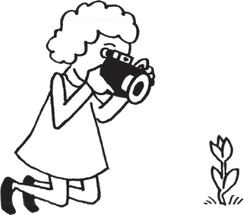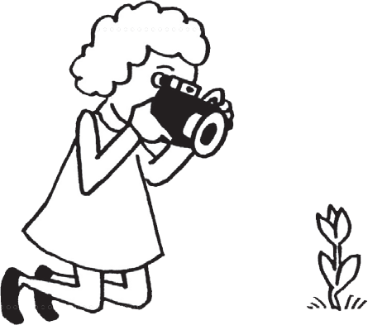-
TUKI – Theater und Kita
GRIPS Theater has been working with daycare centres as part of TUKI since 2013. Since the 2018/19 season, the Barbrossastraße daycare centre and, since 2019/20, the Evangelical Hoffnungskirche as well, have been our partner daycare centres.
Based on the wishes of the children, topics are formulated, examined and made aesthetically and sensually tangible. Depending on the topic, excursions and encounters with experts are carried out in order to expand the spectrum of experience. The resulting impressions form the material from which an interactive performance with an audience emerges at the end.
Six theatres and six daycare centres each form artistic research communities for six months, in which children between the ages of four and six, artists and educators go on a “research trip” together.
For daycare centre children who cannot yet read and write, the research theatre offers a new field of early childhood cultural education: It focuses on experimental and exploratory theatre, which combines project learning (in connection with the Berlin daycare education program) with self-determined artistic processes. The idea of the research theatre takes up the children’s thirst for knowledge and connects it with aesthetic experiences. It moves between exploring the world and artistic practice and lives from the creative friction between reality and fantasy.
Direction: Katja Fillmann
Contact: Vera Düwel (School representative)
Tel.: 030 - 39 74 74 11
Email: tp[at]grips-theater.de -
TUSCH – Theater und Schule
TUSCH is a cooperation network for cultural education that arranges, supports and promotes partnerships between Berlin schools and theatres. These partnerships make an important contribution to cultural education by promoting the active and full participation of young people in the cultural life of the city and establishing theatre as a fundamental part of everyday school life.
Various classes at the GRIPS theatre's TUSCH school receive theatre education support over a period of three years. This means that the pupils regularly visit the GRIPS theatre, gain insights into production processes backstage and receive comprehensive support from GRIPS in designing their own project.
While in the first year the GRIPS and the school get to know each other, the first joint artistic research is carried out as part of a project phase and this is then exhibited at the annual TUSCH festival, in the two following years there is the opportunity to create something completely their own: in years two and three, the pupils work on their own projects such as plays or performances with theatre teachers from the GRIPS. These are then shown at the TUSCH festival and in the respective school.
More information on the programme and registration for partnerships:
https://tusch-berlin.deCurrent TUSCH partner school:
Paula-Fürst-GemeinschaftsschuleTUSCH Execution & Support for the GRIPS Theatre: Elisabeth Graaf and Felix Zilles-Perels and Gitanjali Schmelcher.
Phone: 030 - 39 74 74 11
Mail: tp(at)grips-theater.de -
GRIPS Klassen
Dank der Unterstützung der Stapel Stiftung hat das GRIPS Theater insgesamt 6 GRIPS Klassen. Das Konzept der GRIPS Klassen beruht auf der theaterpädagogischen Begleitung von Schulklassen über vier Jahre.
Die Schüler*innen der GRIPS Klassen besuchen regelmäßig das Theater, um Stücke zu Themen anzusehen, die die Kinder und Jugendlichen betreffen, wobei die erste Vorstellung pro Schuljahr gemeinsam mit den Eltern besucht wird. Anschließend findet jeweils eine pädagogische Nachbereitung statt. Für die weiteren Jahre sind außerdem Theaterprojekttage vorgesehen und eine Projektwoche mit Präsentation für Eltern und Parallelklassen.
Grundschulen
- Galilei Grundschule in Kreuzberg betreut von dem Theaterpädagogen Stephan Behrendt, 4. - 6. Schuljahr (2022-2025)
- Wolkenstein Grundschule in Pankow betreut von dem Theaterpädagogen Stephan Behrendt, 3.- 6. Schuljahr (2022 – 2026)
- Hansa Grundschule in Tiergarten betreut von dem Theaterpädagogen Kalle Mille, 3. - 6. Schuljahr (2022 – 2026)
Oberschulen
- Caspar-David-Friedrich Oberschule in Marzahn betreut von der Theaterpädagogin Ellen Uhrhan, 8. - 10. Schuljahr (2022 bis 2025)
- Gail S. Halvorsen Schule in Steglitz-Zehlendorf betreut von dem Theaterpädagogin Kalle Mille, 8.-10. Schuljahr (2022 bis 2025)
- Martin-Buber-Oberschule in Spandau betreut von der Theaterpädagogin Jelena Bosanac in der Klasse
Wie Sie sich für eine GRIPS Klasse bewerben können, erfahren Sie hier.
GRIPS Klassen wird ermöglicht durch die Joachim und Anita Stapel Stiftung.

Partnerships
Our collaborations enable encounters, cultural education, theatre visits and joint artistic projects for daycare groups and school classes. Please contact us if you are interested in working with us.








